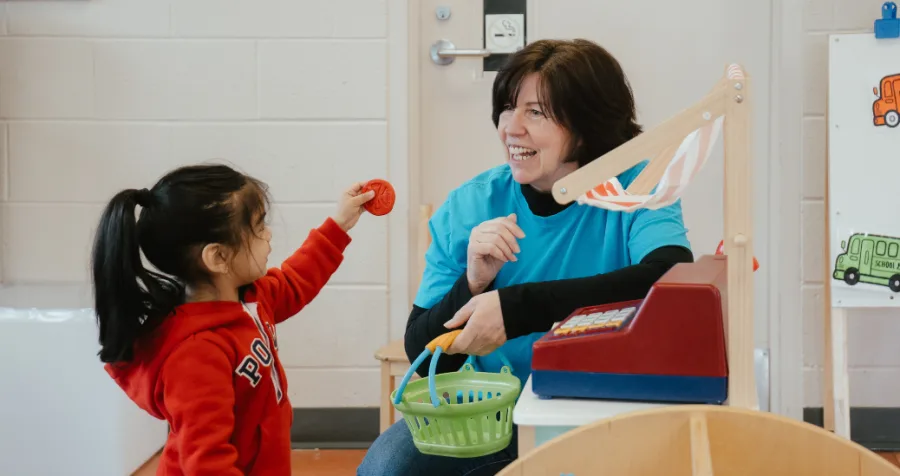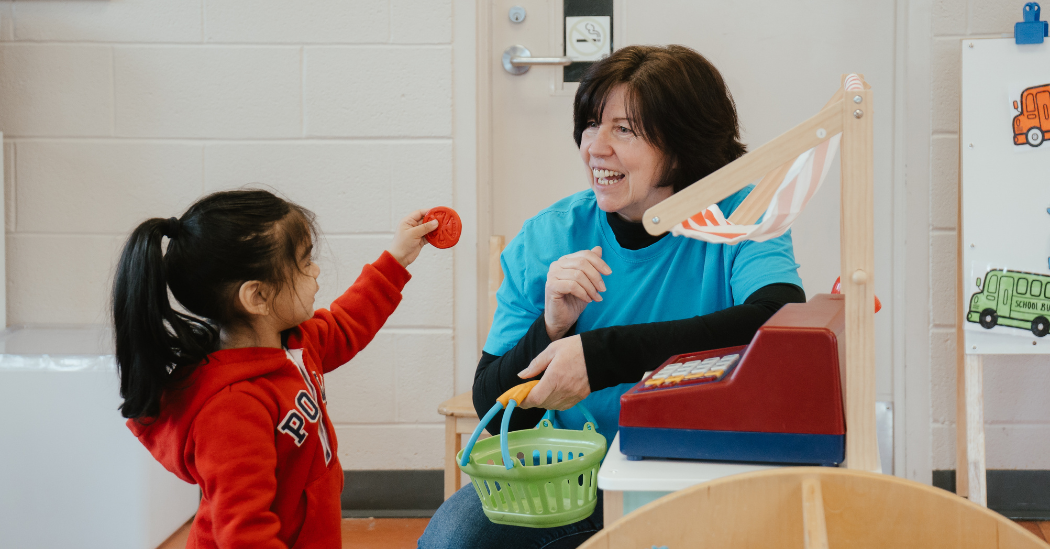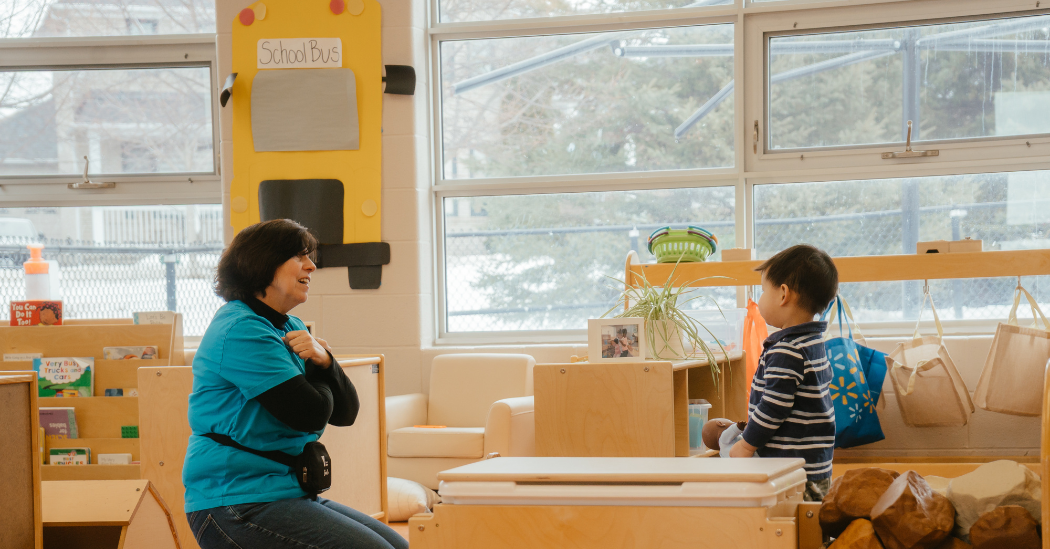What it’s like to start as a supply staff educator in child care at the YMCA of Greater Toronto

Walking into a YMCA classroom as a supply staff educator can feel like stepping into a new world. Children are curious and full of energy. Full-time educators are settled in their routines. Families move quickly through drop-off. And you’re there, wondering how you’ll fit in.
Many YMCA educators have been in this same position. Supply work is where they learned, grew, and even discovered that it was the career they’ve been looking for all along. Some moved into full-time roles or leadership, and others chose to stay in supply because it fit into their lives.
Here’s what those early days are really like, told through the voices of YMCA educators from our In Conversation with Educators video series.
1. Gaining confidence, one shift at a time
Starting in a supply role means adjusting to new classrooms and routines, which can feel intimidating.
Shianne remembers how unsure she felt when she began. What helped was encouragement from her supervisors, who reminded her she had the skills to succeed. Over time, that support built her confidence. Today, she’s an onsite supervisor who helps new educators feel the same sense of support. Confidence doesn’t come overnight, but the right team helps it grow faster.

2. Discovering the variety in every classroom
One of the biggest surprises of supply work is the variety. Some days you’re playing peekaboo with toddlers. Other days, you’re helping school-age children set up a talent show.
Alyssa, now a Registered Early Childhood Educator (RECE), started as a supply and early childhood assistant. She supported educators in delivering quality programming, caring for children, and fostering an engaging and inclusive environment. She says the experience gave her patience and flexibility — lessons she carried into her training with support from the YMCA through sponsorship bursaries and on-the-job training. 
Valerie, now a supervisor, agrees. Early in her career, she worked with different age groups, and each one taught her something new. That variety showed her she thrived with school-age children in Before and After School Care programs.
Supply work is like trying on different hats. You never know which one will fit just right.

3. When leaders see potential in you
Natasha often shares her own path with supply staff educators. “I can see the journey that I travelled — from a supply staff educator to being a full-time educator, an onsite supervisor, a supervisor, then into being a training manager, and now a manager of licensed child care. I think milestones have been there all along the way in every role.”
She says those conversations are some of her favourite moments. “I love connecting with our supply staff. When I go out to visit centres, a lot of them actually will ask me about my journey.”
For Natasha, sharing her story is a way to remind supply staff educators that they’re part of something bigger — and that their own careers can grow in many directions, too.
4. Belonging in every centre
A common concern is that moving between centres might feel lonely. But many educators say they were welcomed wherever they went.
Denzel, a RECE, remembers that feeling clearly. That sense of belonging kept him motivated and proud of his work.
Being a supply staff educator doesn’t mean being on the outside. At the YMCA, you’re part of a network of educators across the Greater Toronto Area (GTA) who share the same values of care and inclusion.
5. Deciding if supply work is the right fit for you
For some, a supply role is a good long-term fit. For others, it leads to a permanent position.
Valerie, an onsite supervisor in Halton Region, reflects on the early days of her career as some of her most valuable learning experiences. She gained the confidence to step into leadership and understand different perspectives. She recommends that new educators start as supply staff.

Chantol, now a recruitment coordinator, also started out in supply work. She explains how it gave her the flexibility she needed to finish school. “At the time, we didn’t have the apprenticeship program, so it was great because I could move from my full-time position to supply, and supply while I was in school,” she says. For her, supply work wasn’t a step back — it was a practical way to balance education and experience, and it opened the door to the career she has today.
Supply can be both flexible and steady. Some educators use it to balance school and family. Others enjoy the variety so much that they choose to stay in the role permanently.
What to expect as a supply educator
If you’re considering taking a supply role at the YMCA, here are a few things you can expect:
- Flexibility: Shifts that work around your life
- Variety: Opportunities to explore different age groups and programs
- Support: Mentors and teammates who guide you as you learn
- Growth: Start with the ECE Bridge to Work program or grow your career with access to bursaries while you study
- Community: Be a part of a team that values belonging
Grow with the Y
Supply work often grows into something much bigger. It’s where confidence is built, where mentors are found, and where many YMCA educators start careers they still enjoy today.
Whether you consider supply work as your long-term role or a stepping-stone, it’s a chance to learn, belong, and make an impact.
Ready to get started?
We’re actively hiring supply staff educators across the GTA. See the locations with current openings [will be a link].
Hear more voices in our In Conversation with Educators video series, where YMCA educators share their early experiences and how supply work opened new paths for them.
















